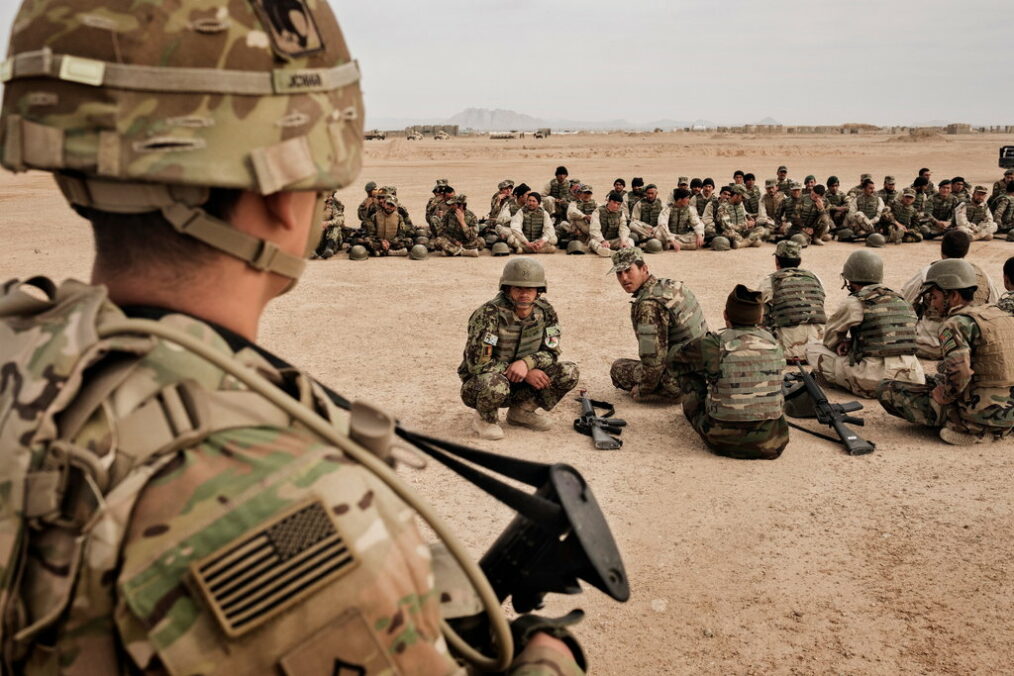
The Afghanistan Papers: What Do They Mean for Peace in the Region?
A recent Washington Post investigation — three years in the making — exposed a multitude of falsified positive views and deceptive action directly taken by the United States government and military officials over the course of the war in Afghanistan. Hundreds of interviews with US officials led to condemnation of the war which has cost 3804 Afghan civilian lives in 2018 alone.
“For 18 years, America has been at war in Afghanistan. As part of a government project to understand what went wrong, a federal agency interviewed more than 400 people who had a direct role in the conflict. In those interviews, generals, ambassadors, diplomats and other insiders offered firsthand accounts of the mistakes that have prolonged the war.
The full, unsparing remarks and the identities of many of those who made them have never been made public — until now. After a three-year legal battle, The Washington Post won release of more than 2,000 pages of “Lessons Learned” interviews conducted by the Office of the Special Inspector General for Afghanistan Reconstruction. Those interviews reveal there was no consensus on the war’s objectives, let alone how to end the conflict.”
- Craig Whitlock, Leslie Shapiro and Armand Emamdjomeh (The Washington Post)
In summary, the government deceived American citizens about the progress made during the war. Bob Crowley, a retired Army colonel who served in Kabul from 2013 to 2014 stated, “The strategy became self-validating. Every data point was altered to present the best picture possible.” The fact that this was allowed to continue covertly for an extended period of time reflects the well-planned nature of the disinformation campaign, especially if one considers its effectiveness through three separate presidencies.
Setting aside the inevitable investigations and questions that will follow, it is important to assess the impact this exposure will have on the ongoing peace process in Afghanistan. This exposure will affect negotiations between the US and the Taliban, bilateral relations between Kabul and Washington and public opinion of the US within Afghanistan.
The Trump administration will need to make changes to their Afghan strategy in an attempt to rectify these mistakes. Conversely, they could seek to divert attention away from the Afghan Papers, but this will have a particularly strong effect on how the peace process unfolds. Speculation in the media that President Trump plans to withdraw additional troops from Afghanistan may be ‘part of the plan’, but it may be a rushed decision to avoid further public criticism. A quick withdrawal will have a major impact on Afghan security and regional stability. It is important that all parties put security above politics, especially in such a fragile region.
In an effort to keep the documents classified, the US State Department argued that the release of portions of certain interviews could jeopardize negotiations with the Taliban and therefore jeopardize efforts to end the war. The Washington Post, however, argued that these documents were classified only after the Post pushed to have them published, indicating a blatant attempt to cover up mistakes.
Despite differences of opinion over the reasons behind the secrecy classification, the release of the ‘Afghanistan Papers’ will undoubtedly influence negotiations with the Taliban, an organization that has been testing the US government long prior to the talks. For example, in an effort to demonstrate strength, the Taliban carried out an attack that killed a US soldier in September. Washington deemed this a step too far and consequently compelled Trump to cancel a secret Camp David meeting. The re-establishment of peace talks — after what can only be described as a cooling-off period — exemplifies that each side pushes the other over acceptable terms and those deemed unreasonable to accept.
Statements within the Afghan Papers that accuse the US of uncertainty and a lack of control over their Afghan strategy gives leverage to the Taliban; an organization so eager to gain power over an enemy that they have struggled to match on the battlefield.
“Was al-Qaeda the enemy, or the Taliban? Was Pakistan a friend or an adversary? What about the Islamic State and the bewildering array of foreign jihadists, let alone the warlords on the CIA’s payroll? According to the documents, the U.S. government never settled on an answer.”
Thus, whilst the US may have tried to keep the Afghanistan Papers hidden for security reasons or to save face, it will undoubtedly affect peace talks with The Taliban as both sides take time to reassess their respective strategies based on the new information available.
In addition to negotiating with the Taliban, the US strategy for peace in Afghanistan has revolved around the development of a close relationship with the Afghan government built on financial and military support. The Afghan government sat patiently at a distance whilst the US negotiated with the Taliban, however, accusations of fraud and corruption within the Afghanistan Papers will provoke the Afghan government to reassess their relationship with the US at the very least.
Sustainable peace in Afghanistan is distant, but it is achievable. It is integral to maintain effective security whilst at the same time allowing Afghanistan to take control of their peace process. As the US slowly relinquishes its duties in the region, they must reassess the outcome of their withdrawal and make assurances that policies and resources remain in place to ensure peace prevails at every opportunity.
